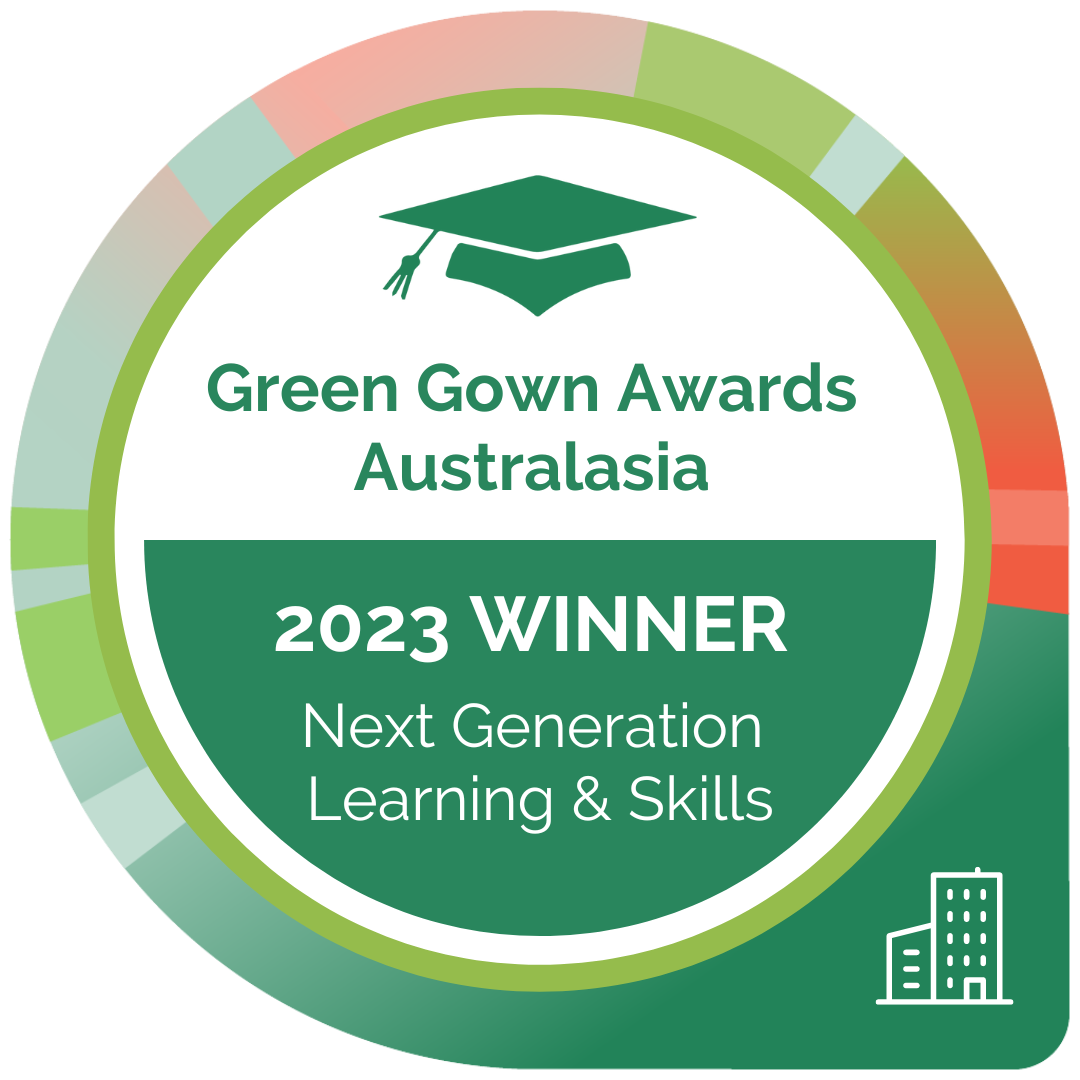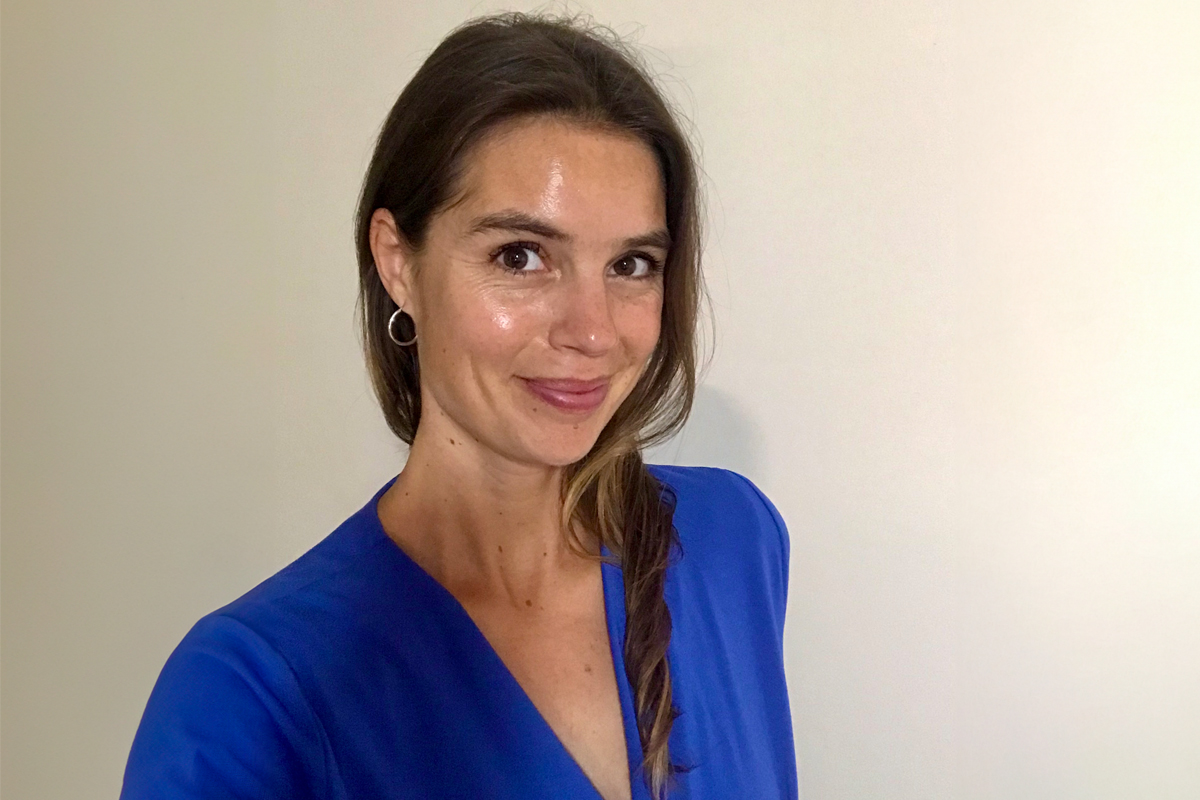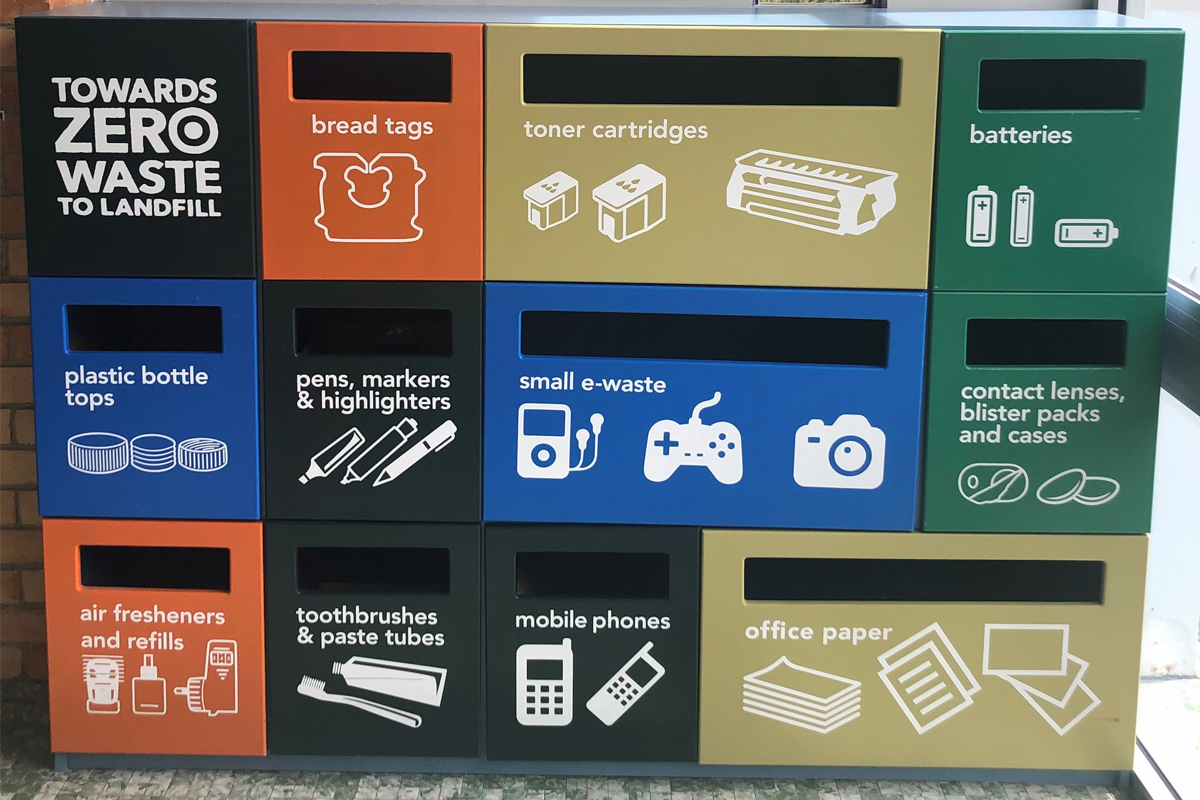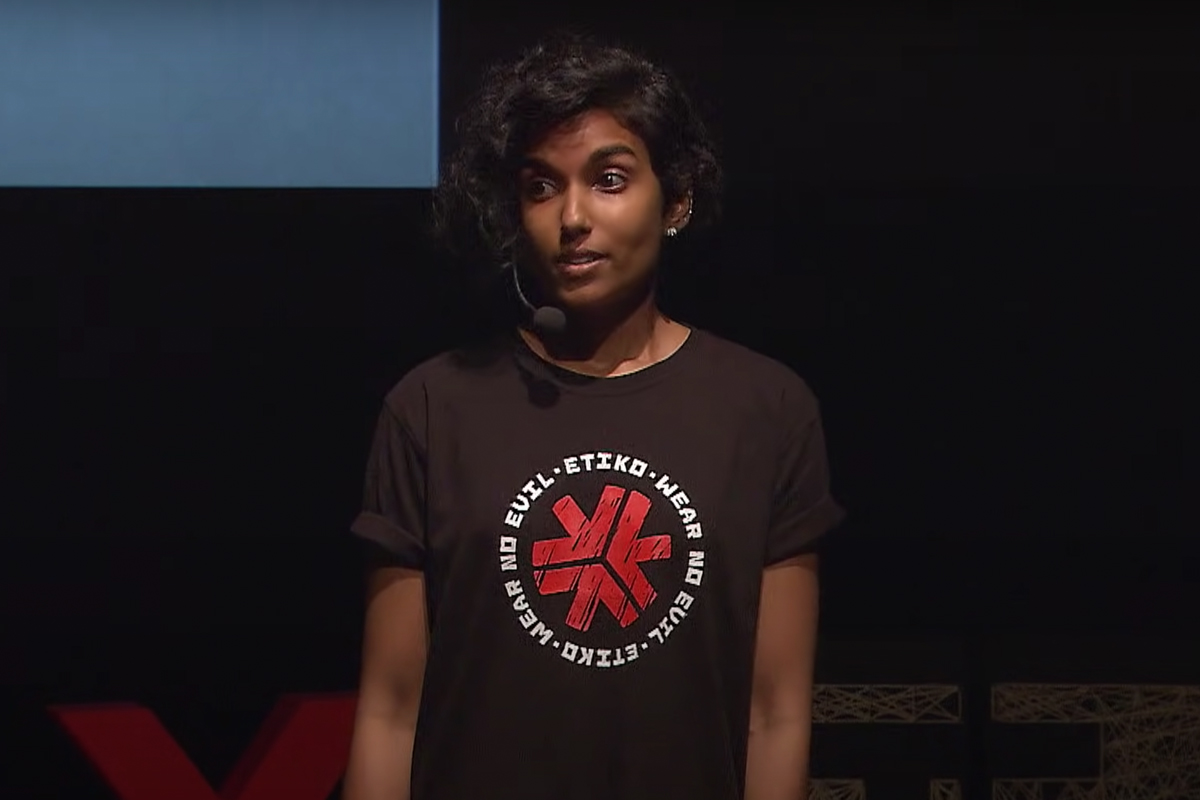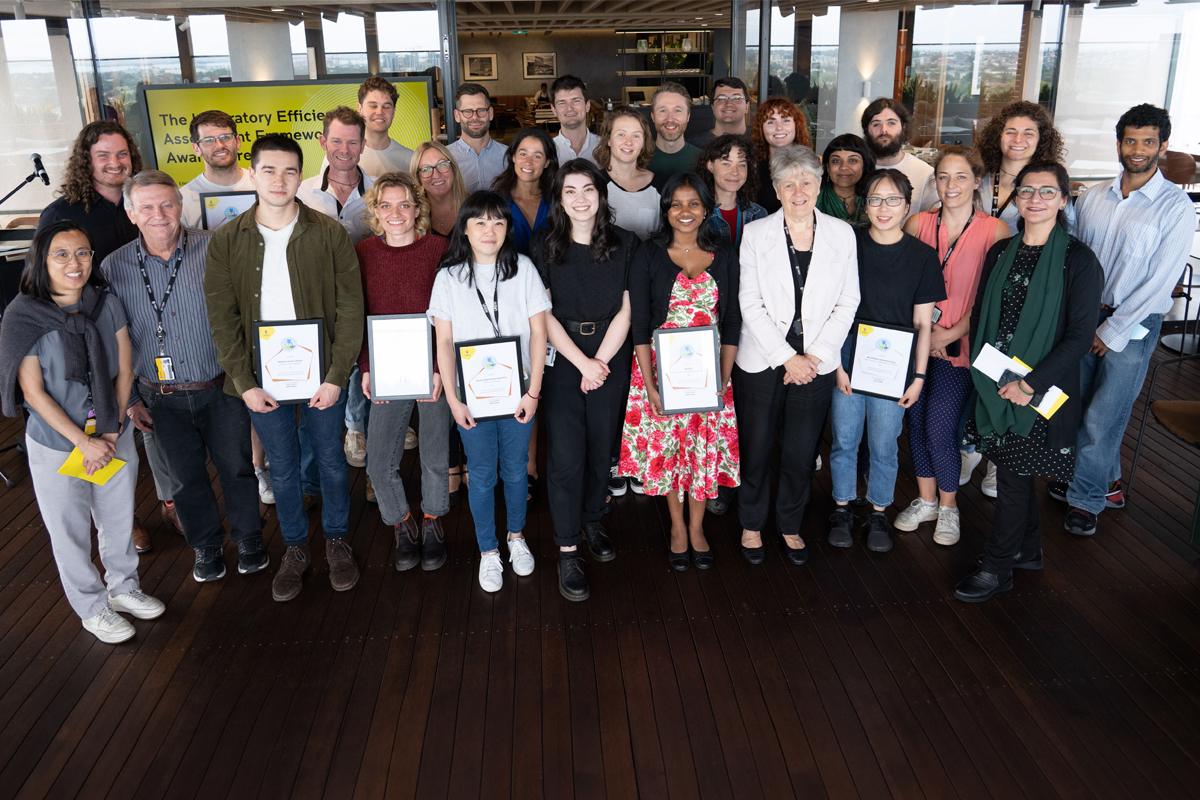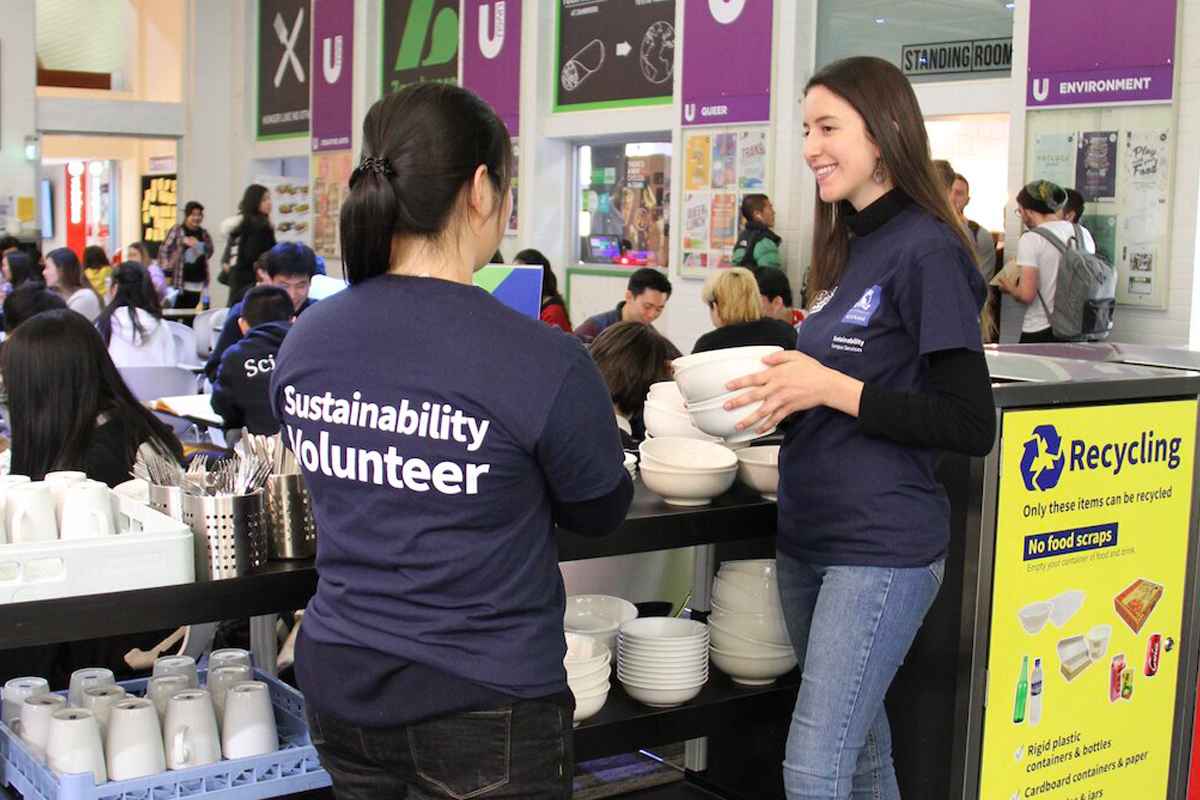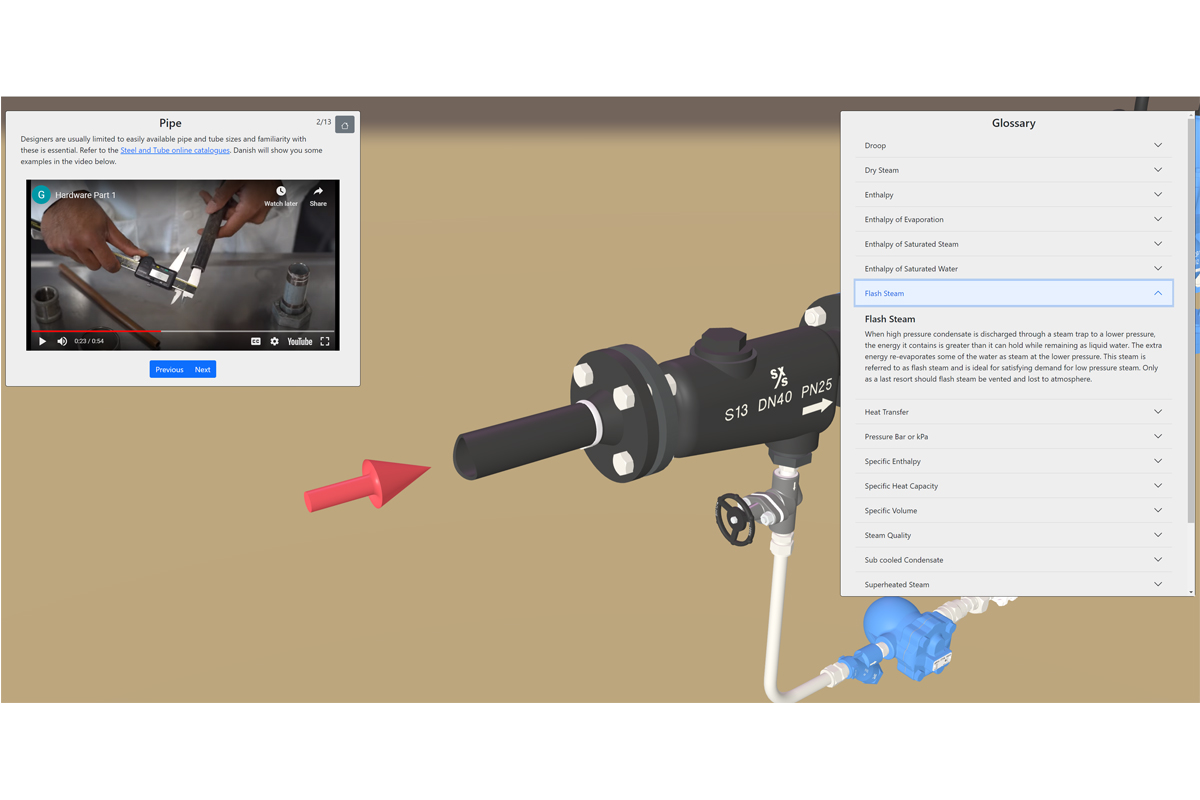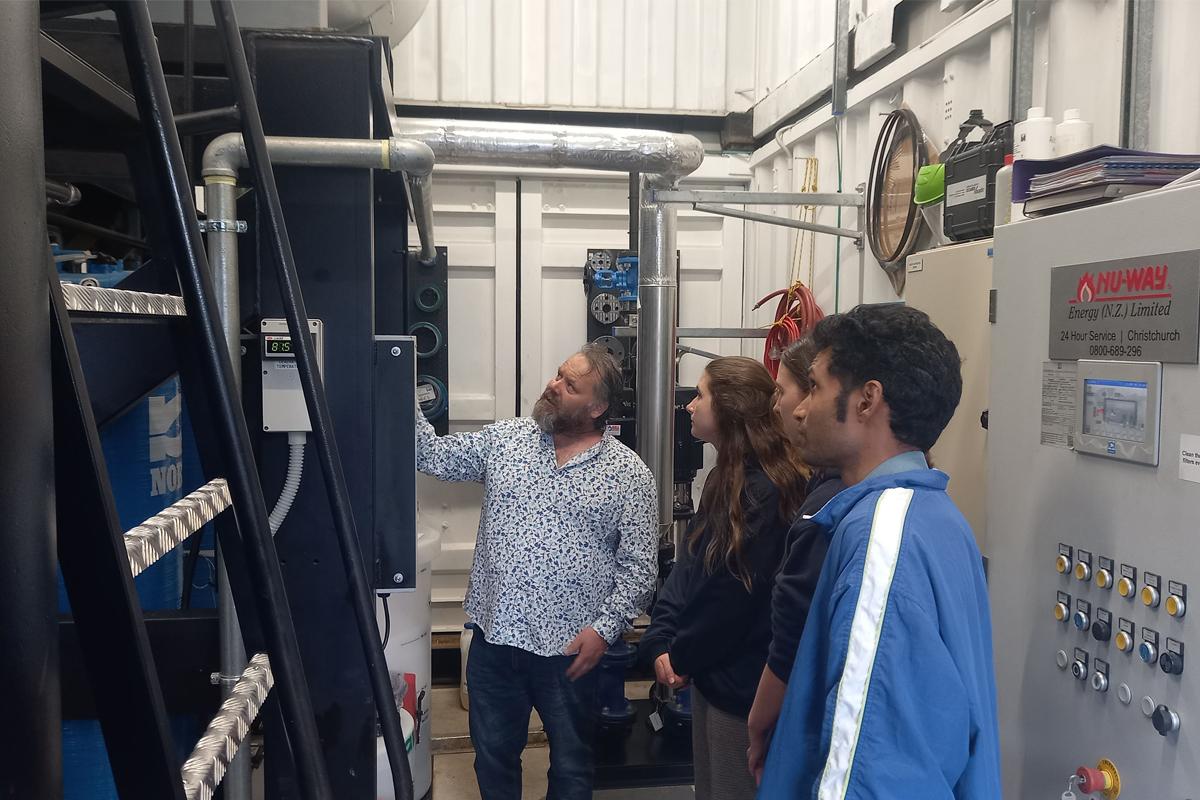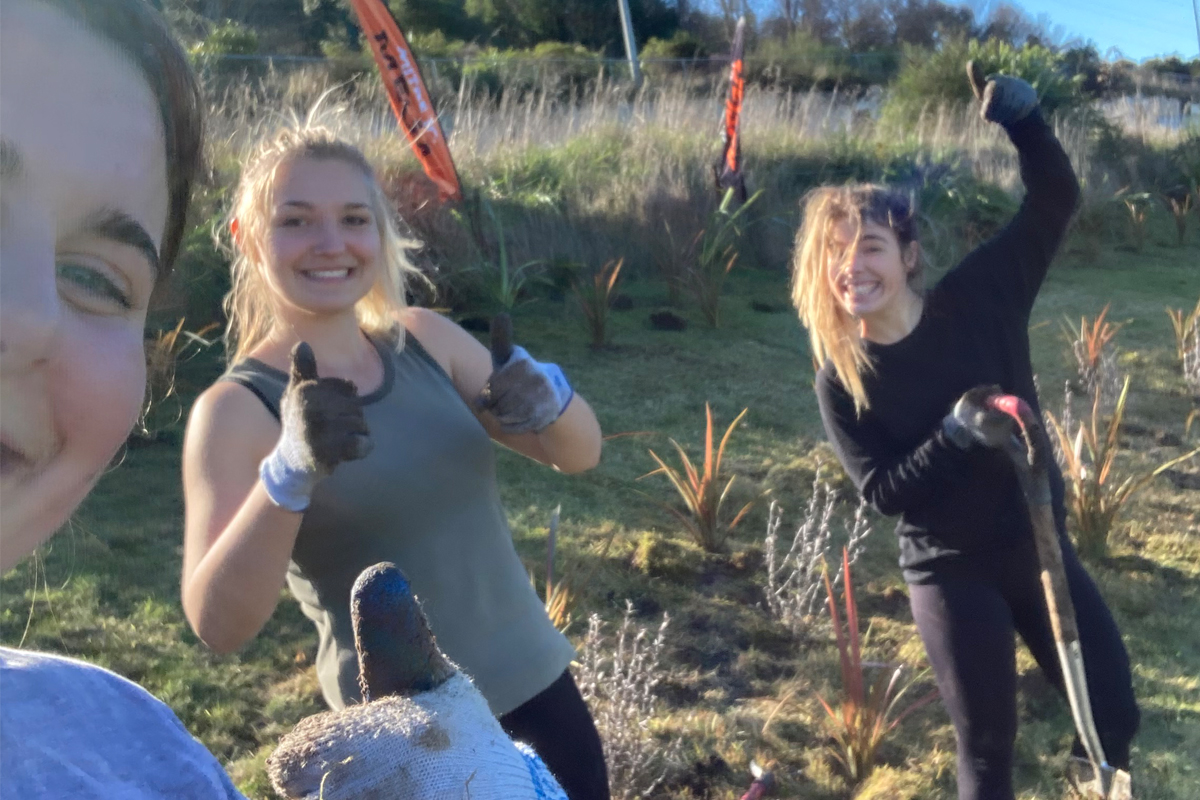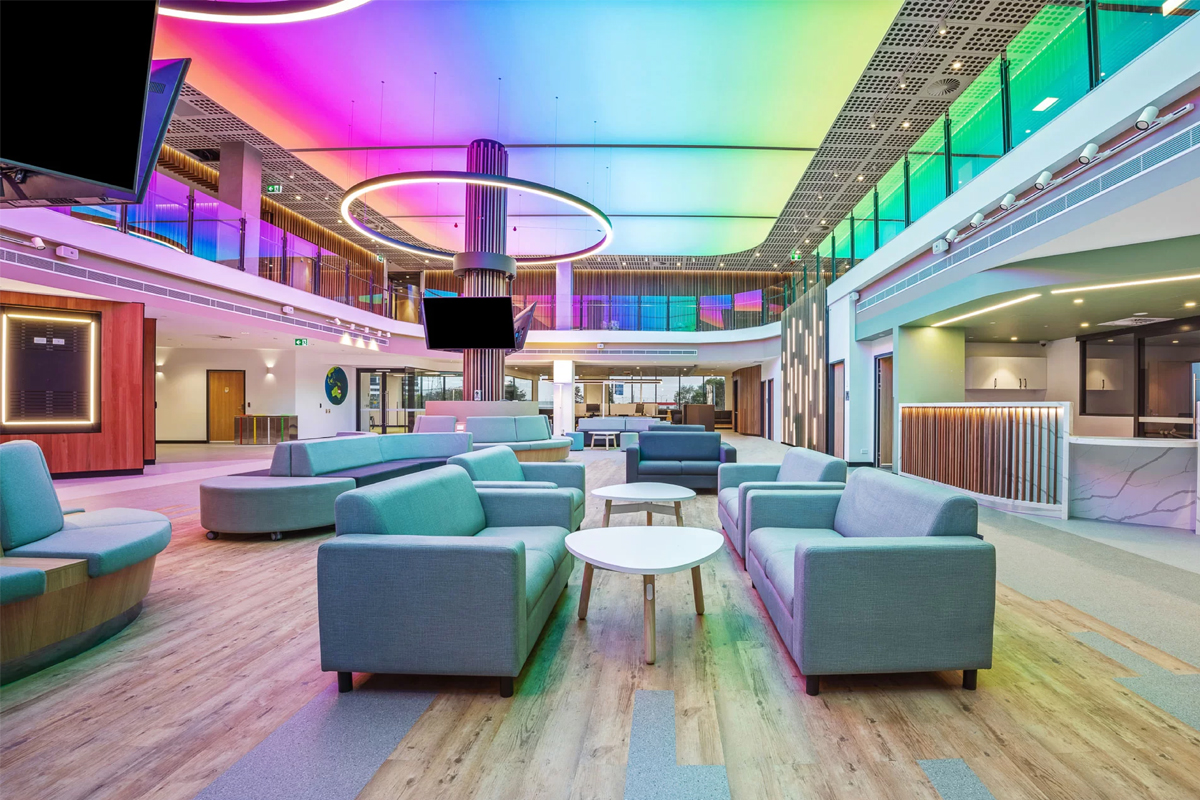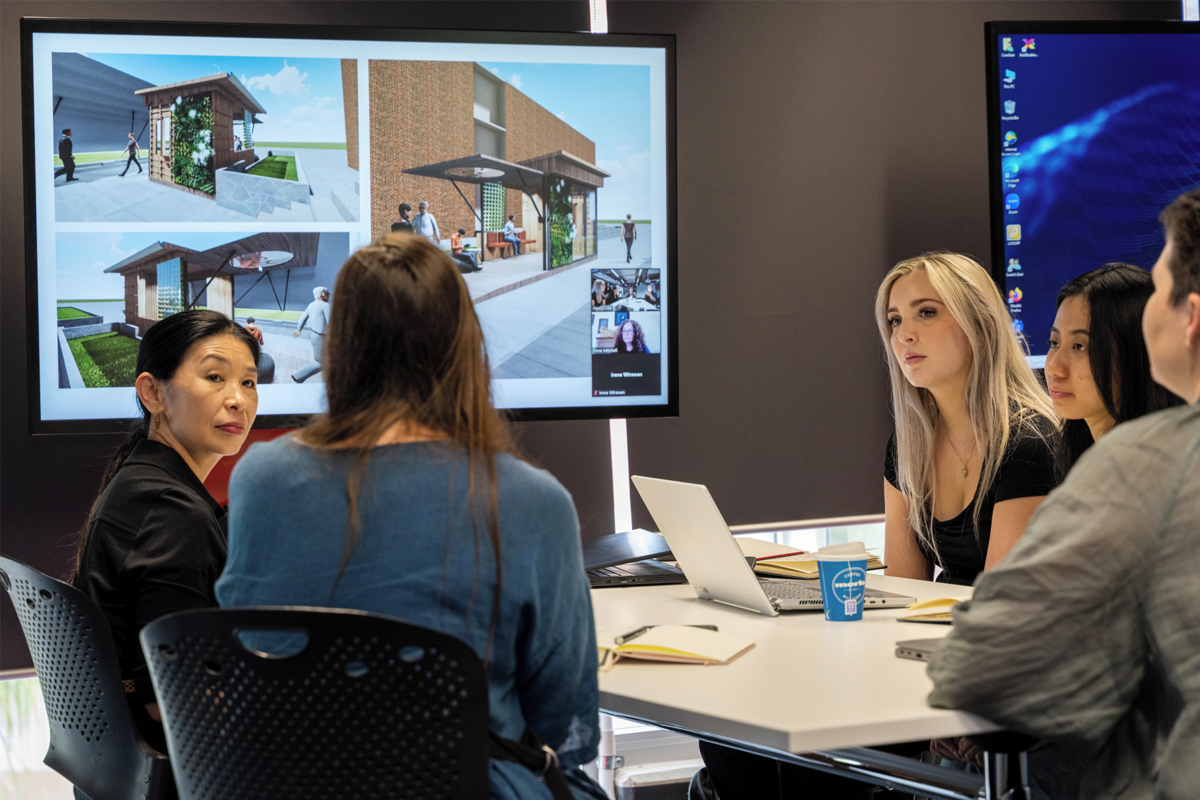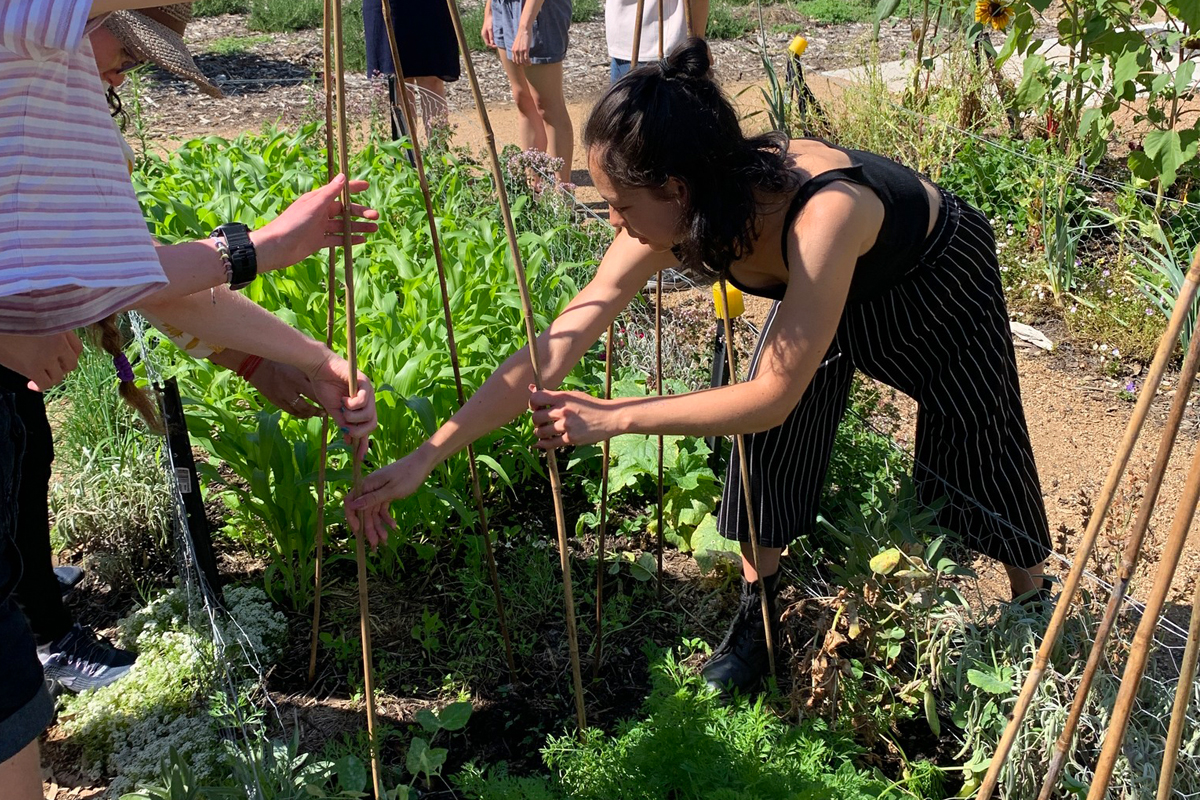Next Generation Learning & Skills/Winners category
The University of Queensland (UQ)’s Master of Sustainable Energy Program educates future leaders to drive the energy transition to a net-zero future. Coordinated by the School of Chemical Engineering, it is one of the only postgraduate programs in Australia to provide a broad multidisciplinary perspective of the challenges of sustainable energy transition.
Since UQ first offered the Sustainable Energy Program in 2017, enrolments have increased by an order of magnitude. In 2022, 49 students graduated from the program, reflecting both the quality of education and the rapidly growing needs of industry. Continuing the current rate of growth over the coming five years, we hope to create more than 400 new net zero leaders by 2028 to drive our national and global – transition to a new sustainable energy economy.
The program’s success is built on three key elements: a flexible program and course delivery; multidisciplinary teaching and learning; and strong industry engagement.
Flexible program and course delivery
The Sustainable Energy Program’s flexible design meets the demand for upskilling a workforce in program structure as well as course content and delivery. The Program suite consists of a Graduate Certificate, a Graduate Diploma, a Master of Sustainable Energy and a Master of Sustainable Energy (Management), which provides an additional semester of management courses for more in-depth study. Students can enrol in the Graduate Certificate without undergraduate qualifications, based on sufficient, relevant work experience. The Program’s offerings are stackable, allowing students with a Graduate Certificate to continue to the Graduate Diploma and/or Master of Sustainable Energy.
Teaching modules are organised in intensive blocks over one week, with a self-paced online module completed beforehand. The intensive modules are well suited to working students who would not normally be attracted to a course run over an entire semester. Students undertaking the Master-level program have the option of selecting a Professional Project in partnership with industry, or their employer, as a capstone to the program. Students can also study electives from across the university in their final semester.
Multidisciplinary teaching and learning
The Program includes technical courses in energy principles and renewable energy, low emissions technology, energy investment and finance, and business responses to climate change. Additionally, there are courses in energy markets, law and policy, energy strategy, innovation and entrepreneurship, and energy efficiency and transport.
Each course has a leadership module, integrating elements from case studies in business decision-making and leadership. The course content is supported by field trips where students experience the real-world challenges of the energy transition from a multidisciplinary approach.
Strong industry engagement
The courses are taught by leading UQ researchers in combination with experts from industry. Students’ career journeys and connections are supported with a range of exclusive networking activities to connect with industry partners and facilitate career opportunities. The Program offers networking events with keynote speakers from government, consultancies and the private sector. Field trips to Gladstone, Heron Island and South-East Queensland allow students to meet professionals working in power stations, natural gas facilities, and UQ’s own solar farms and research facilities.
UQ’s Sustainable Energy Program is overseen by an Industry Advisory Board (IAB) to ensure the Program is producing graduates that match industry needs. IAB members include senior representatives from the Clean Energy Council, Aurecon, ITM Power, Mining3, Strategen, the Australian Energy Regulator and KPMG.
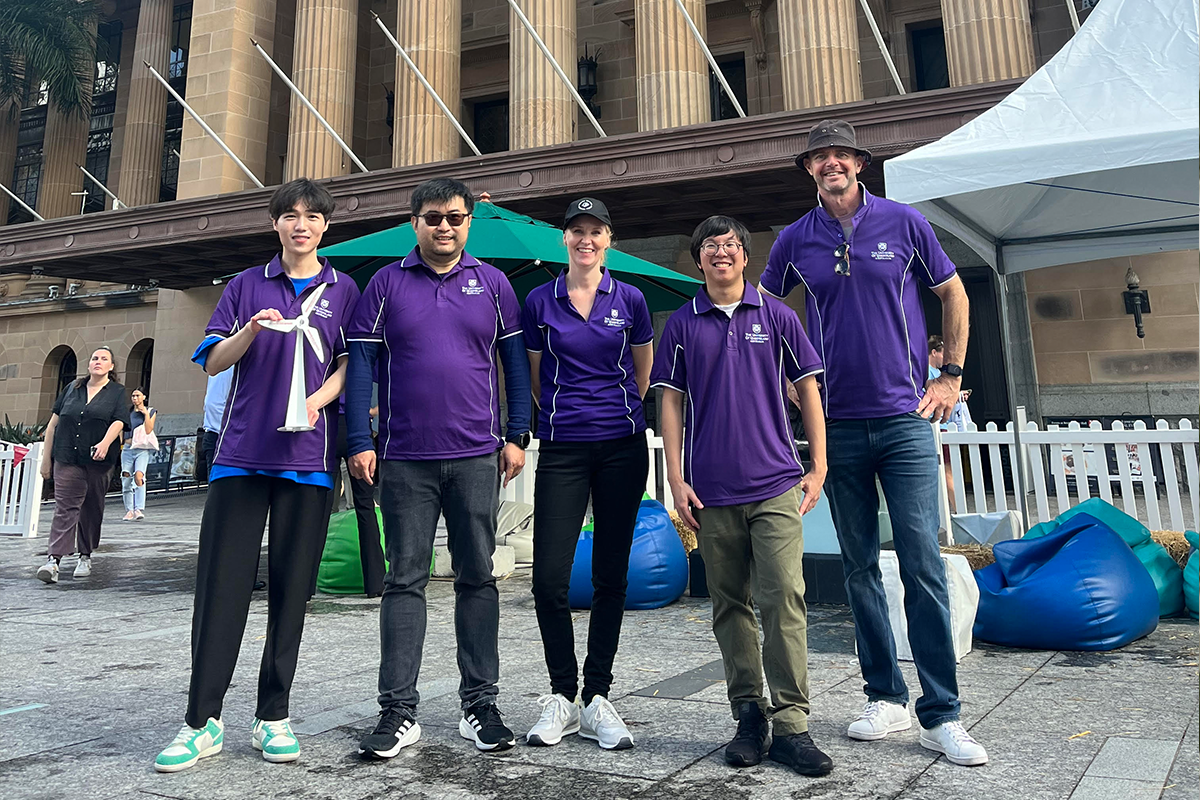
Environmental and social benefits
The energy transition can be characterised by the energy trilemma – the trade-offs between Energy Security, Energy Sustainability and Energy Affordability. Navigating the energy transition is not just an engineering problem but requires skills in understanding local communities and managing major land use changes, including to the Indigenous Estate, ecosystems and agriculture.
The Sustainable Energy Program helps provide the workforce for the broad sectors responding to the energy transition. Through its carefully-crafted multidisciplinary curriculum, it gives students the tools to manage stakeholders and work with the community. Two of the Program’s courses have a specific focus on energy access in remote Indigenous communities, and an understanding of stakeholder management, communications and social licence to operate. There is an opportunity for students to meet and work with stakeholders as part of the Professional Project courses and help articulate perspectives to industry and government.
Sustainable Energy alumni are employed in government and public policy settings and are actively engaged in the development and implementation of new legislation and guidelines as part of the energy transition. These range from senior advisor positions in government ministries through to senior stakeholder coordinators in state-owned enterprises such as electricity generators. A consistent comment from alumni is that the Program’s strong focus on environmental, social and governance (ESG) issues provides a crucial platform for engagement and advancement.
Leadership and engagement
The Sustainable Energy Program provides the technical skills needed for the energy transition, but the Program also has a specific focus on leadership and business acumen so that graduates can lead change in company boardrooms and government organisations. The Program is specifically aligned to the sustainability leadership principles, delivering direction, alignment and commitment to address social, environmental and economic issues and create a better world. Leadership modules are incorporated into all core courses and focus on systemic and long-term perspectives; establishing and maintaining cross-boundary networks; role-playing different perspectives; exercising influence without authority; working with complexity; and recognising the importance of self-leadership.
Significance to the sector
UQ’s Sustainable Energy Program is unique in Australia, offering multidisciplinary postgraduate study regarding the complexities of the transition to sustainable energy. Its flexible structure makes it attractive to a diverse group of international and domestic students with various backgrounds and work experience.
The Program’s success and appeal are reflected in the high number of graduates within a short period. Despite this success, the UQ alone will be unable to supply the graduates required in the energy workforce to achieve Australia’s Net Zero ambitions by 2050 (estimated at an additional 600,000 to 700,000 people). Thus, the significance for the sector is that this program offers a model that could be replicated across Australia’s universities. In particular, the three key elements of the Program – flexibility, industry engagement and multidisciplinary teaching – provide a proven template for success.
Wider societal impact
UQ’s Sustainable Energy Program contributes to alleviating a key workforce bottleneck as Australia’s economy undergoes a significant transformation as part of its efforts to achieve Net Zero Emissions. The transition towards decarbonisation and renewable energy sources will impact every industry across Australia’s economy, presenting significant implications to the workforce that will require improved coordination and the creation of skills and training opportunities.
In Queensland, the Queensland Energy and Jobs Plan commits the Queensland Government to supporting workforce development for the energy transition, and to develop a Future Energy Workforce Roadmap, led by the Department of Employment Small Business and Training. Meanwhile, 2022 Skilling the Energy Transition report by the Clean Energy Council recognises that the shortage of university graduates applying for clean energy jobs is due to a combination of reasons relating to both universities and industry. The report highlights quantitative issues of the number of graduates in the pipeline with the necessary skills and qualitative issues of misalignment with industry needs. UQ’s Sustainable Energy Program on its own cannot solve this workforce issue, but its successful delivery model and key elements can be replicated by other universities in these efforts.
Learner/Graduate employer impact
The Sustainable Energy Program has strong graduate impacts, with the Industry Advisory Board ensuring that graduates have the skill sets needed for employment. The Program, as a postgraduate qualification, allows people to complement their undergraduate degree and experience, enhancing their employability in the energy sector.
From analysis of LinkedIn data, the majority of graduates work in the private sector (companies or consultancies) or government organisations, in the following areas: Oil & Energy; Mining & Metals; Mechanical or Industrial Engineering; Renewables and Environment; Utilities; Government Administration. To date, UQ’s Sustainable Energy graduates work in more than 30 countries around the world, along with every state and territory in Australia.
Most graduates find work opportunities in senior positions such as Executive General Manager; Senior Advisor/Consultant Decarbonisation; Manager – Hydrogen & Clean Fuels Development; Project Development Director; Sustainability Focus Leader; Senior Strategy Associate; Climate Change Policy Analyst; and Head of Power & Energy. The reputation of the Sustainable Energy Program is increasing, with increased unsolicited recruitment of students and graduates occurring.
Top 3 learnings
Related finalists
Climate Action/Winners
Climate Action/Winners
Benefitting Society/Winners
Benefitting Society/Winners
Creating Impact/Winners
Creating Impact/Winners
Sustainability Champion – Student/Winners
Sustainability Champion – Student/Winners
Creating Impact/Winners
Creating Impact/Winners
Leading the Circular Economy/Winners
Leading the Circular Economy/Winners
Sustainability Champion – Student/Winners
Sustainability Champion – Student/Winners
Creating Impact/Winners
Creating Impact/Winners
Diversity, Equity & Inclusion in Sustainability/Winners
Diversity, Equity & Inclusion in Sustainability/Winners
Sustainability Institution of the Year/Winners
Sustainability Institution of the Year/Winners
Leading the Circular Economy/Winners
Leading the Circular Economy/Winners
Next Generation Learning & Skills
Next Generation Learning & Skills
Next Generation Learning & Skills/Winners
Next Generation Learning & Skills/Winners
Sustainability Champion – Staff/Winners
Sustainability Champion – Staff/Winners
Sustainability Champion – Student/Winners
Sustainability Champion – Student/Winners
Next Generation Learning & Skills/Winners
Next Generation Learning & Skills/Winners
Sustainability Champion – Staff/Winners
Sustainability Champion – Staff/Winners
Sustainability Champion – Staff/Winners
Sustainability Champion – Staff/Winners
Student Engagement/Winners
Student Engagement/Winners
Other finalists
Climate Action
Climate Action
Sustainability Champion – Staff/Winners
Sustainability Champion – Staff/Winners
Student Engagement
Student Engagement
Creating Impact
Creating Impact
Sustainability Champion – Staff/Winners
Sustainability Champion – Staff/Winners
Sustainability Champion – Student
Sustainability Champion – Student
Top 3 learnings
Next Generation Learning & Skills/Winners category
The University of Queensland (UQ)’s Master of Sustainable Energy Program educates future leaders to drive the energy transition to a net-zero future. Coordinated by the School of Chemical Engineering, it is one of the only postgraduate programs in Australia to provide a broad multidisciplinary perspective of the challenges of sustainable energy transition.
Since UQ first offered the Sustainable Energy Program in 2017, enrolments have increased by an order of magnitude. In 2022, 49 students graduated from the program, reflecting both the quality of education and the rapidly growing needs of industry. Continuing the current rate of growth over the coming five years, we hope to create more than 400 new net zero leaders by 2028 to drive our national and global – transition to a new sustainable energy economy.
The program’s success is built on three key elements: a flexible program and course delivery; multidisciplinary teaching and learning; and strong industry engagement.
Flexible program and course delivery
The Sustainable Energy Program’s flexible design meets the demand for upskilling a workforce in program structure as well as course content and delivery. The Program suite consists of a Graduate Certificate, a Graduate Diploma, a Master of Sustainable Energy and a Master of Sustainable Energy (Management), which provides an additional semester of management courses for more in-depth study. Students can enrol in the Graduate Certificate without undergraduate qualifications, based on sufficient, relevant work experience. The Program’s offerings are stackable, allowing students with a Graduate Certificate to continue to the Graduate Diploma and/or Master of Sustainable Energy.
Teaching modules are organised in intensive blocks over one week, with a self-paced online module completed beforehand. The intensive modules are well suited to working students who would not normally be attracted to a course run over an entire semester. Students undertaking the Master-level program have the option of selecting a Professional Project in partnership with industry, or their employer, as a capstone to the program. Students can also study electives from across the university in their final semester.
Multidisciplinary teaching and learning
The Program includes technical courses in energy principles and renewable energy, low emissions technology, energy investment and finance, and business responses to climate change. Additionally, there are courses in energy markets, law and policy, energy strategy, innovation and entrepreneurship, and energy efficiency and transport.
Each course has a leadership module, integrating elements from case studies in business decision-making and leadership. The course content is supported by field trips where students experience the real-world challenges of the energy transition from a multidisciplinary approach.
Strong industry engagement
The courses are taught by leading UQ researchers in combination with experts from industry. Students’ career journeys and connections are supported with a range of exclusive networking activities to connect with industry partners and facilitate career opportunities. The Program offers networking events with keynote speakers from government, consultancies and the private sector. Field trips to Gladstone, Heron Island and South-East Queensland allow students to meet professionals working in power stations, natural gas facilities, and UQ’s own solar farms and research facilities.
UQ’s Sustainable Energy Program is overseen by an Industry Advisory Board (IAB) to ensure the Program is producing graduates that match industry needs. IAB members include senior representatives from the Clean Energy Council, Aurecon, ITM Power, Mining3, Strategen, the Australian Energy Regulator and KPMG.

Environmental and social benefits
The energy transition can be characterised by the energy trilemma – the trade-offs between Energy Security, Energy Sustainability and Energy Affordability. Navigating the energy transition is not just an engineering problem but requires skills in understanding local communities and managing major land use changes, including to the Indigenous Estate, ecosystems and agriculture.
The Sustainable Energy Program helps provide the workforce for the broad sectors responding to the energy transition. Through its carefully-crafted multidisciplinary curriculum, it gives students the tools to manage stakeholders and work with the community. Two of the Program’s courses have a specific focus on energy access in remote Indigenous communities, and an understanding of stakeholder management, communications and social licence to operate. There is an opportunity for students to meet and work with stakeholders as part of the Professional Project courses and help articulate perspectives to industry and government.
Sustainable Energy alumni are employed in government and public policy settings and are actively engaged in the development and implementation of new legislation and guidelines as part of the energy transition. These range from senior advisor positions in government ministries through to senior stakeholder coordinators in state-owned enterprises such as electricity generators. A consistent comment from alumni is that the Program’s strong focus on environmental, social and governance (ESG) issues provides a crucial platform for engagement and advancement.
Leadership and engagement
The Sustainable Energy Program provides the technical skills needed for the energy transition, but the Program also has a specific focus on leadership and business acumen so that graduates can lead change in company boardrooms and government organisations. The Program is specifically aligned to the sustainability leadership principles, delivering direction, alignment and commitment to address social, environmental and economic issues and create a better world. Leadership modules are incorporated into all core courses and focus on systemic and long-term perspectives; establishing and maintaining cross-boundary networks; role-playing different perspectives; exercising influence without authority; working with complexity; and recognising the importance of self-leadership.
Significance to the sector
UQ’s Sustainable Energy Program is unique in Australia, offering multidisciplinary postgraduate study regarding the complexities of the transition to sustainable energy. Its flexible structure makes it attractive to a diverse group of international and domestic students with various backgrounds and work experience.
The Program’s success and appeal are reflected in the high number of graduates within a short period. Despite this success, the UQ alone will be unable to supply the graduates required in the energy workforce to achieve Australia’s Net Zero ambitions by 2050 (estimated at an additional 600,000 to 700,000 people). Thus, the significance for the sector is that this program offers a model that could be replicated across Australia’s universities. In particular, the three key elements of the Program – flexibility, industry engagement and multidisciplinary teaching – provide a proven template for success.
Wider societal impact
UQ’s Sustainable Energy Program contributes to alleviating a key workforce bottleneck as Australia’s economy undergoes a significant transformation as part of its efforts to achieve Net Zero Emissions. The transition towards decarbonisation and renewable energy sources will impact every industry across Australia’s economy, presenting significant implications to the workforce that will require improved coordination and the creation of skills and training opportunities.
In Queensland, the Queensland Energy and Jobs Plan commits the Queensland Government to supporting workforce development for the energy transition, and to develop a Future Energy Workforce Roadmap, led by the Department of Employment Small Business and Training. Meanwhile, 2022 Skilling the Energy Transition report by the Clean Energy Council recognises that the shortage of university graduates applying for clean energy jobs is due to a combination of reasons relating to both universities and industry. The report highlights quantitative issues of the number of graduates in the pipeline with the necessary skills and qualitative issues of misalignment with industry needs. UQ’s Sustainable Energy Program on its own cannot solve this workforce issue, but its successful delivery model and key elements can be replicated by other universities in these efforts.
Learner/Graduate employer impact
The Sustainable Energy Program has strong graduate impacts, with the Industry Advisory Board ensuring that graduates have the skill sets needed for employment. The Program, as a postgraduate qualification, allows people to complement their undergraduate degree and experience, enhancing their employability in the energy sector.
From analysis of LinkedIn data, the majority of graduates work in the private sector (companies or consultancies) or government organisations, in the following areas: Oil & Energy; Mining & Metals; Mechanical or Industrial Engineering; Renewables and Environment; Utilities; Government Administration. To date, UQ’s Sustainable Energy graduates work in more than 30 countries around the world, along with every state and territory in Australia.
Most graduates find work opportunities in senior positions such as Executive General Manager; Senior Advisor/Consultant Decarbonisation; Manager – Hydrogen & Clean Fuels Development; Project Development Director; Sustainability Focus Leader; Senior Strategy Associate; Climate Change Policy Analyst; and Head of Power & Energy. The reputation of the Sustainable Energy Program is increasing, with increased unsolicited recruitment of students and graduates occurring.
Related finalists
Climate Action/Winners
Climate Action/Winners
Benefitting Society/Winners
Benefitting Society/Winners
Creating Impact/Winners
Creating Impact/Winners
Sustainability Champion – Student/Winners
Sustainability Champion – Student/Winners
Creating Impact/Winners
Creating Impact/Winners
Leading the Circular Economy/Winners
Leading the Circular Economy/Winners
Sustainability Champion – Student/Winners
Sustainability Champion – Student/Winners
Creating Impact/Winners
Creating Impact/Winners
Diversity, Equity & Inclusion in Sustainability/Winners
Diversity, Equity & Inclusion in Sustainability/Winners
Sustainability Institution of the Year/Winners
Sustainability Institution of the Year/Winners
Leading the Circular Economy/Winners
Leading the Circular Economy/Winners
Next Generation Learning & Skills
Next Generation Learning & Skills
Next Generation Learning & Skills/Winners
Next Generation Learning & Skills/Winners
Sustainability Champion – Staff/Winners
Sustainability Champion – Staff/Winners
Sustainability Champion – Student/Winners
Sustainability Champion – Student/Winners
Next Generation Learning & Skills/Winners
Next Generation Learning & Skills/Winners
Sustainability Champion – Staff/Winners
Sustainability Champion – Staff/Winners
Sustainability Champion – Staff/Winners
Sustainability Champion – Staff/Winners
Student Engagement/Winners
Student Engagement/Winners
Other finalists
Climate Action


Driving Towards Tomorrow’s Campus with Vehicle-to-Grid EV Technology
As part of Flinders University’s drive to innovate and become a leader in climate action, the University launched its Vehicle-to-Grid (V2G) initiative. This involved installing and maintaining 20x V2G and smart chargers for its growing electric vehicle fleet. Leveraging 100% renewable energy generated by ENGIE’s Willogoleche Wind Farm and Flinders University’s solar power systems, this enables the storage of renewable energy in EV batteries to be discharged on campus during peak demand periods. Hence, allows for these EV fleets to operate as a Virtual Power Plant (VPP) to deliver peak demand management and optimization of behind-the-meter generation.
Overall, this initiative demonstrates the reliability and scalability of bi-directional and uni-directional smart-charging systems for EVs in reducing GHG emissions while facilitating teaching, research, and innovation opportunities. Moreover, it exemplifies a sustainable and innovative solution to scale energy storage technology and increase renewables.
Sustainability Champion – Staff/Winners

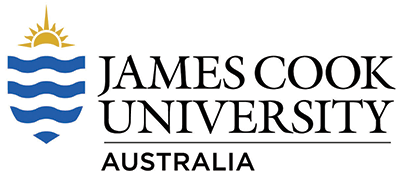
Brandan Espe
Environmental Officer / Acting Grounds Supervisor
Brandan has brought over 50 federally listed Endangered species of plant into the James Cook University living collection, many of which have never been cultivated and are found in no other collection in the world.
Of these, over half have been sustainably wild collected, inclusive of field and clone data, so they can be used for ongoing conservation, research and teaching, the remaining being sourced from private and partner organisations through favours of service or trades.
He personally funded the project from 2019-2022, until funding was awarded for the program due to its success, with the program now being engrained into the Universities landscapes for ongoing management should he leave JCU, creating a threatened species legacy collection.
The program has now expanded beyond this, with an additional 48 species now funded for further addition, some of which are only known from less than 5 sightings in history.
Student Engagement


Sustainability Leaders creating real impact!
La Trobe created a unique Sustainability Leaders volunteering program to increase engagement with students on campus and empower them to act against waste and promote sustainability. It included the following initiatives:
- Promoting the reusable crockery implementation,
- Increasing knowledge action of other students on campus to diversion comingled recycling and organic waste from landfill.
- Focus on waste audits and data,
- Improved signage through new waste posters for students living on campus.
- Collaboration with Cirka (our cleaning and waste partner) to create a waste wall and;
- Learning all things sustainability (net zero, biodiversity, waste, reusables, engagement)
These initiatives yielded significant results and with a reduction in waste contamination by almost 40% at the residential buildings and engagement with over 80 groups of people for the Reusable Revolution.
Creating Impact


Where knowledge meets habits: Empowering students for a sustainable tomorrow
Our online Sustainability Challenges offer participants an engaging, self-paced learning experience centered around a specific United Nations Sustainable Development Goal (UNSDG). Requiring minimal resourcing and at zero-cost to participants, we’ve created replicable, compact, scalable, and impactful learning opportunities that result in real impact.
The Challenges follow a structured process that moves participants from knowledge gain to simple action to celebration, to establish small but mighty habits relating to waste and carbon emissions. This approach recognises that knowledge alone is often insufficient to drive behaviour change, and that ease of action and celebration are crucial components in creating sustainable habits.
Sustainability Champion – Staff/Winners


Catherine (CeeJay) Donovan
Veterinary nurse – Anaesthesia
From establishing the Massey Vet School Green Team to leading impactful initiatives, my commitment to environmental sustainability has been making waves. With the help of my team, I have accomplished numerous small, yet meaningful actions, including integrating a sustainability lecture for final year vet students and implementing battery recycling alongside rechargeable battery use. Our larger projects encompass the introduction of green waste and soft plastics recycling bins, an energy audit resulting in power-saving measures, and playing a part in a successful rubbish audit. I spearheaded the ‘6 in 6’ campaign, empowering individuals with six simple steps for workplace sustainability. Through the SustainaVet social media pages I help to educate and inspire peers nationwide. As the Massey School of Veterinary Science sustainability champion, I had the privilege of speaking at the annual veterinary conference on sustainability in clinical practice. Currently I’m conducting pioneering research on responsible cat waste disposal. Together, we’re forging a greener future, one initiative at a time.
Sustainability Champion – Student


Louis Walmsley
SDG Coordinator Monash Association of Sustainability, Office Bearer Monash Student Association’s Environmental and Social Justice Department, Masters of Environment and Sustainability Student
Louis is an exceptional student sustainability leader at Monash University. His passion and dedication to sustainability have made a significant impact on the community. Louis’s values revolve around sustainability, which is evident upon meeting him. He actively participates in various sustainability groups, demonstrating his commitment to creating a more environmentally conscious society.
One of Louis’s notable involvements is with Precious Plastic Monash, where he organizes remarkable events and fosters collaboration among like-minded individuals, student groups, and staff. His contributions to the Monash Association of Sustainability have allowed him to conduct valuable research on plastic usage and climate action, resulting in positive changes within the university.
Through his work with the Monash Student Association, Louis has engaged hundreds of students in fun and interactive sustainability initiatives. He took the initiative to organize a sustainability food fair, which was one of the largest sustainability-related events held at Monash post-COVID. This accomplishment is a true testament to Louis’s hard work and creativity.
Louis is an outstanding student leader whose efforts in sustainability have had a lasting impact on Monash University and its community. His inspiring nature resonates with everyone who knows him.

